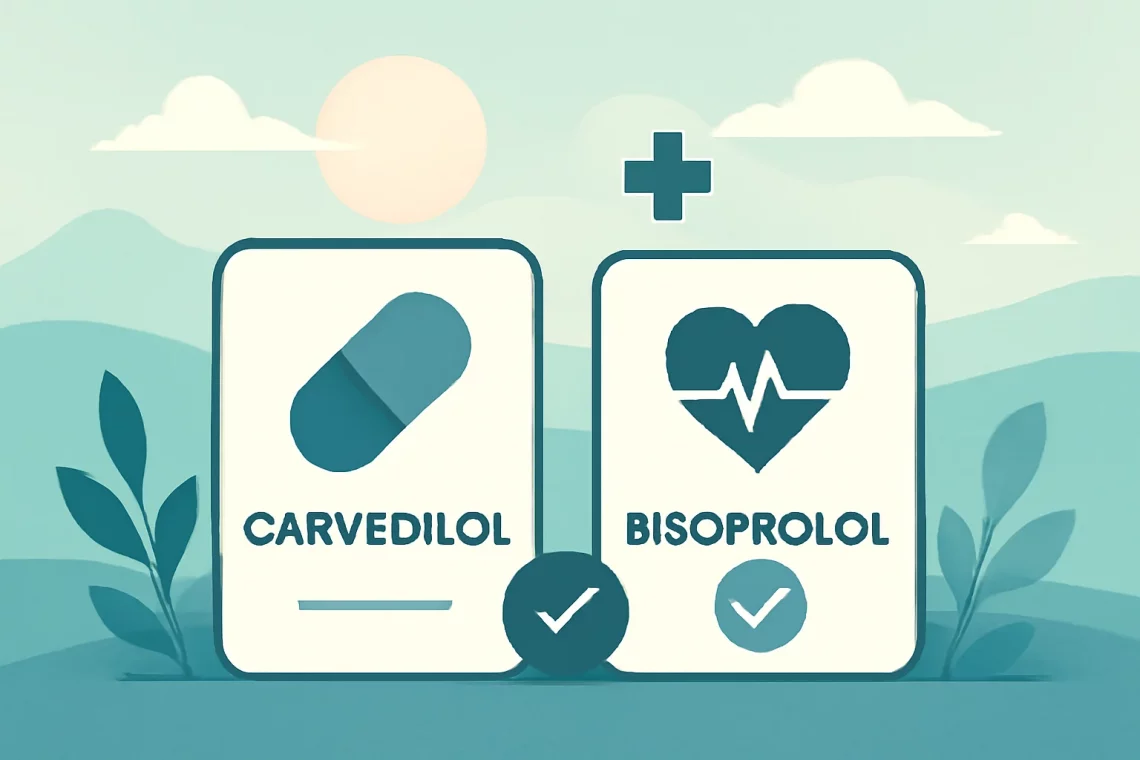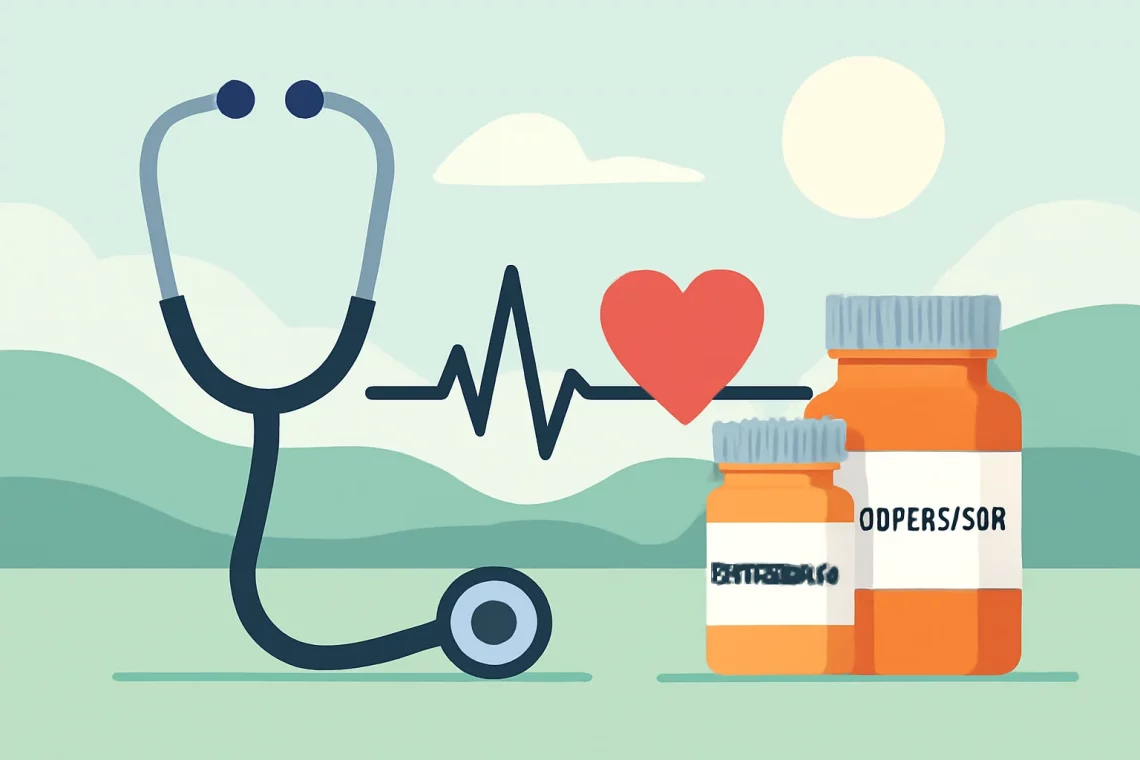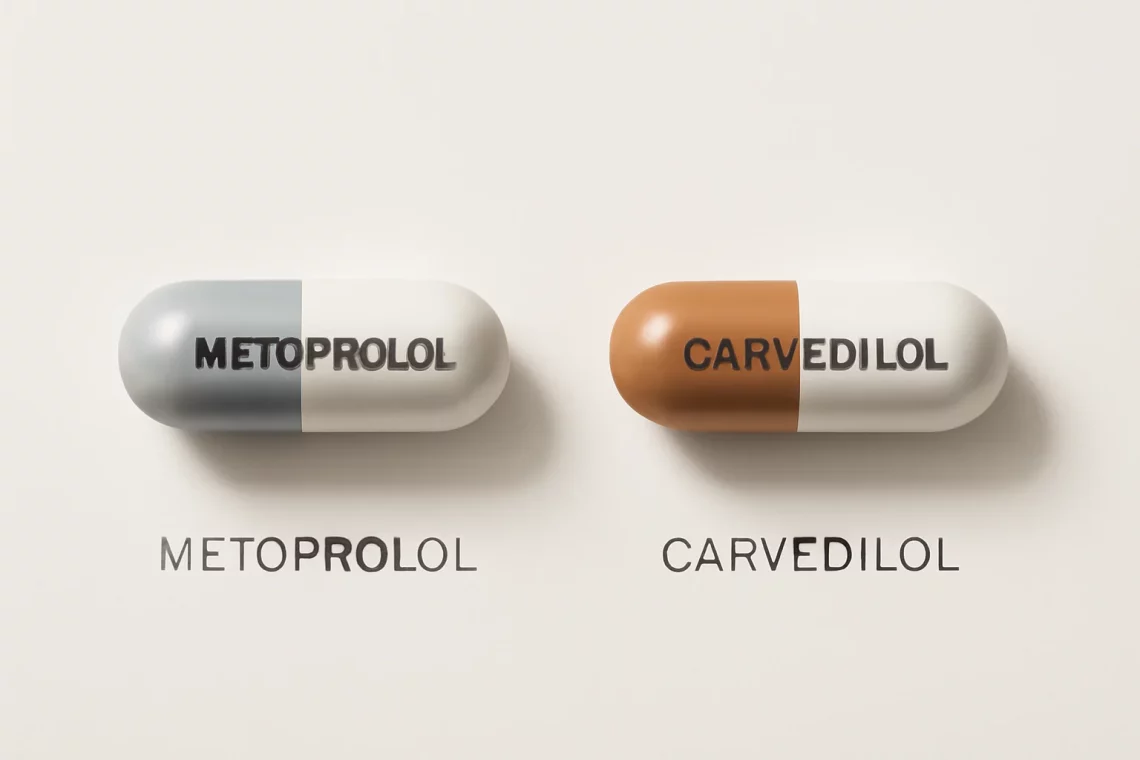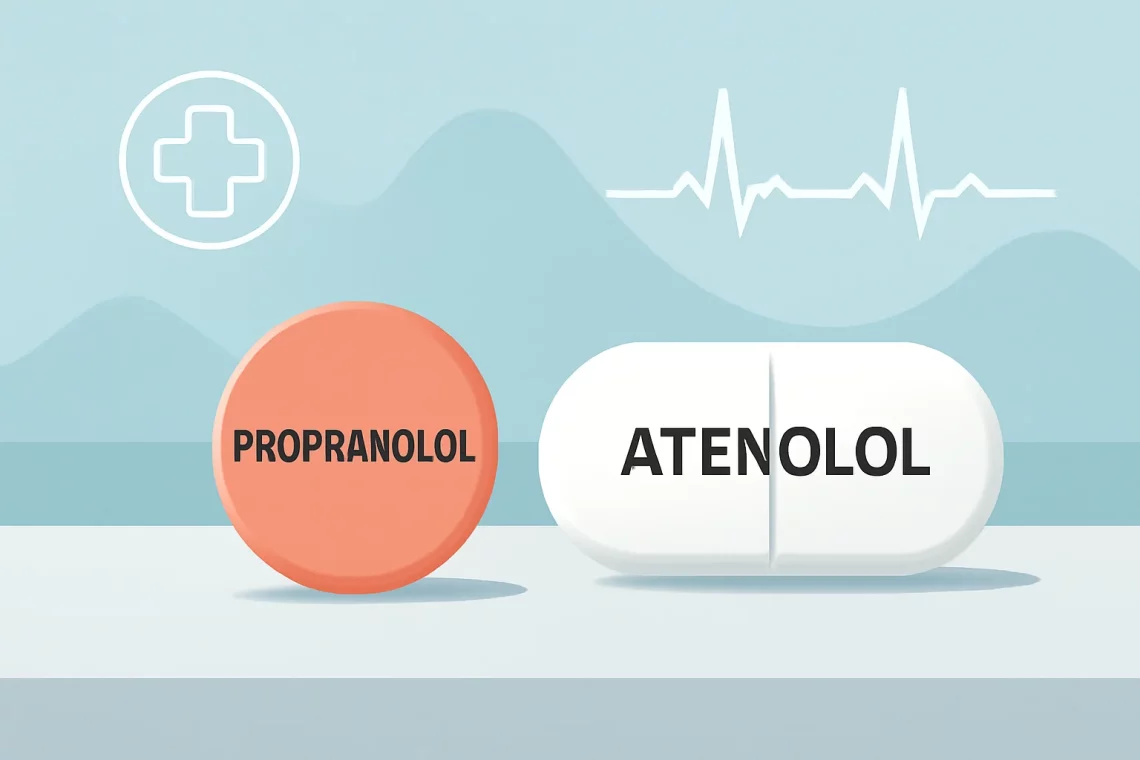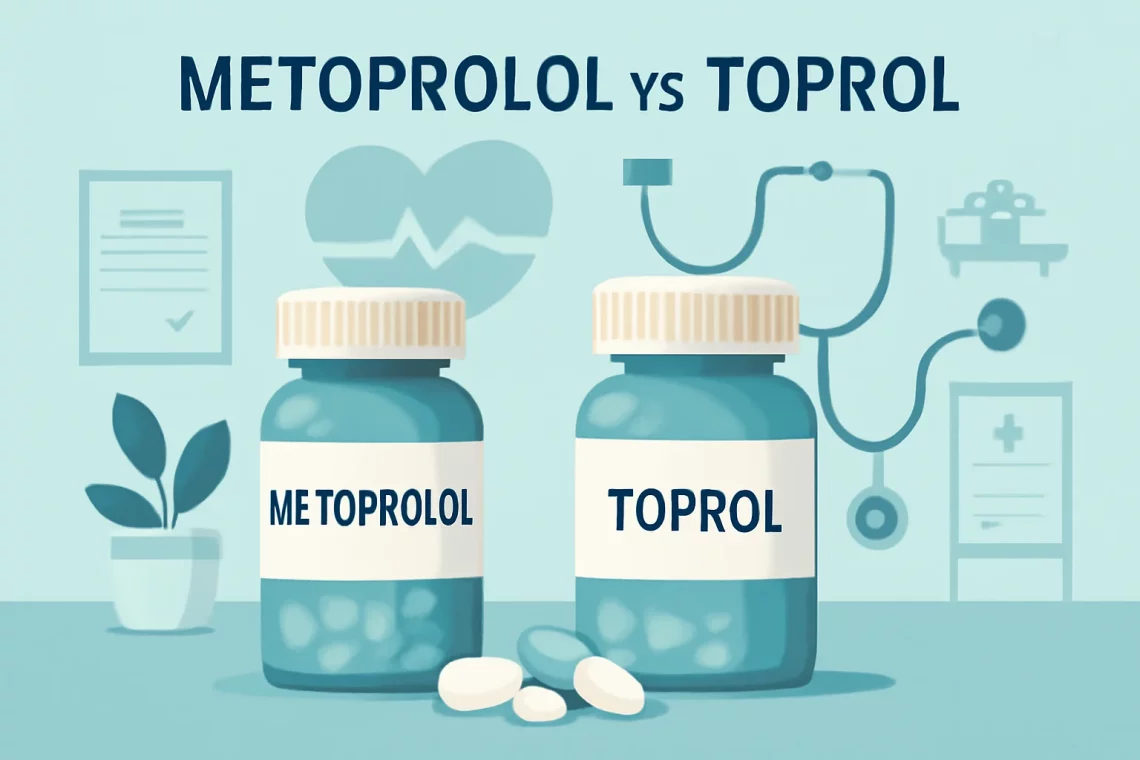-
Carvedilol vs Bisoprolol Which Beta-Blocker Is Right for You?
Carvedilol and bisoprolol are two prominent medications commonly prescribed for managing cardiovascular conditions, particularly hypertension and heart failure. As beta-blockers, they share similar mechanisms of action but differ in their specific applications, side effects, and efficacy profiles. Understanding these differences is essential for both healthcare professionals and patients to make informed decisions about treatment options. In recent years, the focus on cardiovascular health has intensified, with a growing emphasis on personalized medicine. This approach tailors treatment plans to individual patient needs, making it crucial to compare various medications. Carvedilol is known for its ability to provide additional benefits beyond heart rate reduction, such as vasodilation, which can lead to improved…
-
Metoprolol vs Lopressor: Understanding Their Differences and Uses
Metoprolol and Lopressor are two terms that often come up in discussions about heart health and hypertension management. As beta-blockers, both medications play a crucial role in treating various cardiovascular conditions, but they do so in slightly different ways. Understanding these drugs and their implications for health can make a significant difference in patient outcomes. Metoprolol, the generic name, is widely used in clinical settings to manage high blood pressure, heart rhythm disorders, and other heart-related issues. Lopressor, the brand name under which metoprolol is marketed, is often prescribed in hospitals and outpatient settings. While both names refer to the same active ingredient, their formulations, dosages, and specific uses can…
-
Metoprolol vs Carvedilol: Which Beta-Blocker is Right for You?
Metoprolol and carvedilol are both medications primarily used to manage cardiovascular conditions, but they belong to different classes of drugs and have distinct mechanisms of action. Understanding their differences, uses, and potential side effects is essential for patients and healthcare providers alike. While both medications are effective at treating high blood pressure, heart failure, and other heart-related issues, they have varying profiles that can make one more suitable than the other depending on individual patient needs. As patients navigate their treatment options, it’s crucial to consider factors such as existing health conditions, potential interactions with other medications, and personal health goals. The choice between metoprolol and carvedilol often comes down…
-
Propranolol vs Atenolol: Which Beta-Blocker Is Right for You?
Propranolol and Atenolol are two widely prescribed medications that belong to the class of drugs known as beta-blockers. These medications are primarily used to manage various cardiovascular conditions, such as hypertension, angina, and arrhythmias. They can also be effective in treating other conditions, including anxiety and migraine prevention. Both drugs work by inhibiting the effects of adrenaline on the body’s beta receptors, which leads to a decrease in heart rate and blood pressure. Despite their similarities, Propranolol and Atenolol possess distinct pharmacological properties and clinical applications that can influence a physician’s choice of treatment. Understanding these differences is essential for patients and healthcare providers alike, as it can significantly impact…
-
Metoprolol vs Toprol: Understanding the Key Differences and Uses
Metoprolol and Toprol are two terms often used interchangeably in the world of cardiovascular medications. These medications belong to a class known as beta-blockers, which are primarily used to manage high blood pressure, heart rhythm disorders, and other heart-related conditions. Despite their similarities, it is crucial to understand that Metoprolol and Toprol, while closely related, are not exactly the same. Their differences can significantly impact how they are prescribed and how they function in the body. Beta-blockers like Metoprolol work by blocking the effects of adrenaline on the heart and blood vessels. This action leads to a decrease in heart rate and blood pressure, making it easier for the heart…
